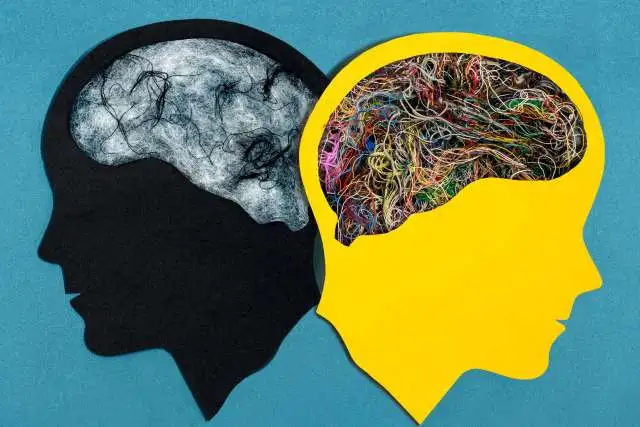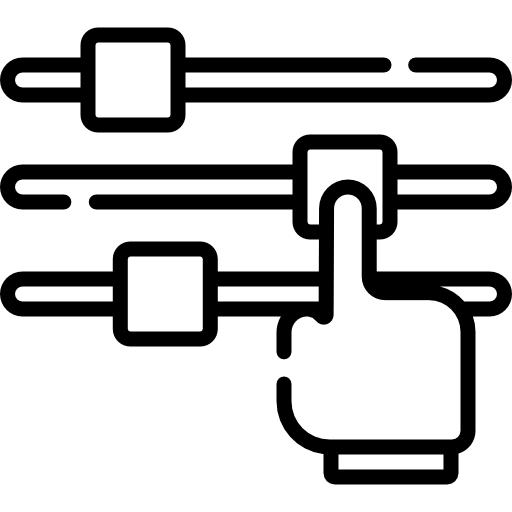Bipolar Disorder
Online Pyschiatric Mental Health Clinic for Bipolar Diagnosis and Treatment in Tucson, AZ

Online Bipolar Disorder Therapy and Treatment in Tucson, AZ
Bipolar Disorder or manic depressive illness, can lead to significant changes in mood, energy, and behavior. These fluctuations can interfere with daily activities, but with appropriate treatment, these challenges can be managed effectively.
At Foothills Psychiatry our board-certified psychiatric mental health nurse practitioner, Simon George, and his team specialize in providing online diagnosis and treatment of Bipolar Disorder in Tucson, AZ. We help in stabilizing moods and thoughts, enabling individuals to lead a more fulfilling life.
To schedule an appointment, please call our office.
Bipolar Disorder FAQ’s
What is Bipolar Disorder
The National Institute of Mental Health says Bipolar Disorder or manic-depressive illness, is a mental health condition that causes significant mood swings, energy shifts, and changes in behavior.
There are three primary forms of bipolar disorder, each characterized by distinct changes in mood, energy, and activity levels:
- Manic Episodes: This form of bipolar involves highly elevated, irritable, or energized behaviors.
- Depressive Episodes: These episodes of bipolar are marked by feelings of sadness, indifference, or hopelessness.
- Hypomanic Episodes: These are less severe forms of manic episodes.
Individuals with bipolar disorder often struggle with daily tasks due to these mood fluctuations. While occasional mood changes are normal, persistent or worsening symptoms should be addressed by a healthcare provider. At Foothills Psychiatry in Tucson, AZ, our online or telepsychiatry services are designed to help manage and alleviate the symptoms of bipolar disorder, supporting you towards better mental health.
Bipolar disorder Symptoms?
People suffering from bipolar disorder go through phases of intense emotions, altered sleep patterns, and shifts in activity levels. Here are some common symptoms:
Symptoms of Bipolar Manic Episodes:
– Feeling capable of doing many things at once without getting tired
– Feeling important, talented, or powerful
– Racing thoughts
– Increased appetite for food, drinking, sex, or other pleasurable activities
– less need for sleep
– More active than usual
– Feeling very up, high, elated, or extremely irritable or touchy
Symptoms of Bipolar Depressive Episodes:
– Feeling unable to do easier things
– Feeling hopeless or worthless, even thinking about death or suicide
– Difficulty concentrating or making decisions
– Lack of interest in almost all activities
– Altered sleeping patterns
– Feeling slowed down or restless
– Feeling very sad, or anxious
If you or your loved one are going through such symptoms of bipolar, don’t panic because support is available. Foothills Psychiatry provides online diagnosis and therapy for bipolar disorder from the comfort of your home. Give our staff a call to consult a bipolar specialist online in Tucson, AZ.
Bipolar Disorder Risk Factors
Based on most research and studies, people agree that many factors can likely cause bipolar disorder. Some of them can be:
Family History and Genetics: Studies indicate that individuals with specific genetics are more prone to developing bipolar disorder. Furthermore, research demonstrates that individuals with a family history of bipolar disorder, particularly with affected parents or siblings, are at higher risk of experiencing the disorder themselves. It’s worth noting that bipolar disorder is influenced by multiple genes, and it doesn’t stem from a single gene.
Brain structure and functioning: It is evident from studies that brains with bipolar disorders work differently than other brains. Based on the diagnosis and test results, our healthcare experts in Tucson, Arizona can provide a treatment plan and medications to help you stabilize and control your condition.
Traumatic Life Events: Traumatic life events can impact bipolar disorder in several ways such as – triggering those events, traumas complicating the treatment process, increased vulnerability, frequent mood swings. Highlighting these traumas can help your healthcare provider to better understand your conditions and provide treatment options best suitable for you.
Substance Abuse: Regular consumption of drugs or substances can also affect how human brain functions and cause bipolar disorders. If you or someone in your family feels very frequent and unusal mood shifts, kindly contact your nearest healthcare provider. Foothills Psychiatric Clinic in Tucson, AZ also provides online medication and support for substance abuse and bipolar disorder. Kindly call our office for appointments and consultations.
How is Bipolar Disorder Diagnosed
To confirm first if you are struggling with bipolar disorder, the team at Foothills Psychiatry in Tucson conducts a comprehensive evaluation. They will ask about your thoughts, emotions, feelings, lifestyle habits, any medications you are taking, and medical history.
Our Psychiatric Health Care Professionals also offers pharmacogenomic testing to determine which medicines can work best with your conditions. We can prescribe a customized treatment plan based on the current situation.
Bipolar Disorder Treatment and Medication
An effective treatment plan for Bipolar Disorder usually includes medication, psychotherapy (also called talk therapy), or a combination of both. Foothills Psychiatry can help you choose the right treatment plan for you:
a.) Medications for stabilizing Bipolar Disorder:
Medication management can help improve and manage your mood fluctuations and symptoms associated with bipolar disorder. Our team can provide mood stabilizer medications based on the evaluation of your current conditions. As we work both offline and online, we can prescribe medications during in-person consultations or prescribe medications online and send to your nearest pharmacy.
b.) Psychotherapy:
Psychotherapy, often referred to as talk therapy, is an effective treatment plan for individuals diagnosed with bipolar disorder. This therapeutic approach includes various techniques aimed at assisting individuals in recognizing and modifying distressing emotions, thoughts, and behaviors. Such therapy offers support, education, and guidance not only to individuals with bipolar disorder but also to their families.
Cognitive-behavioral therapy (CBT), is can be effective in treating depression. CBT can offer significant help in treating bipolar depression and insomnia.
c. Other Positive Lifestyle Changes :
Most initial stages of bipolar disorders can be controlled by adopting healthy lifestyle habits. Healthy lifestyle changes such as eating healthy and nutritious foods, getting plenty of rest, regular workout sessions, traveling, etc. Choosing these healthy habits can reduce stress levels and stabilize mental health conditions.
To receive compassionate and effective treatment plan for bipolar disorder in Tucson, AZ, kindly contact Foothills Psychiatric Clinic. We are taking new patients and offer both offline and online consultations. Call our office at 480-608-4877 for further queries and appointments.














